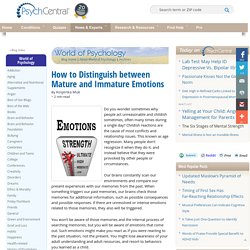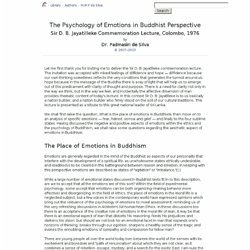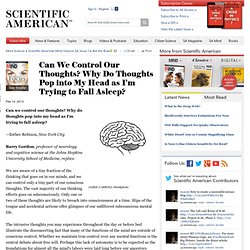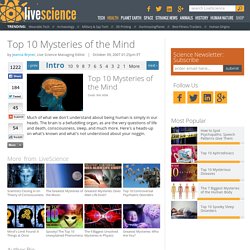

10 Psychological Studies That Will Change What You Think You Know About Yourself. How to Distinguish between Mature and Immature Emotions. Do you wonder sometimes why people act unreasonable and childish sometimes, often many times during a single day?

Childish reactions are the cause of most conflicts and relationship issues. This known as age regression. Many people don’t recognize it when they do it, and instead believe that they were provoked by other people or circumstances. Our brains constantly scan our environments and compare our present experiences with our memories from the past. When something triggers our past memories, our brains check those memories for additional information, such as possible consequences and possible responses. How to control extreme emotions (video) OBSESSIVE ACTIONS AND RELIGIOUS PRACTICES - SIGMUND FREUD - ATHENAEUM LIBRARY OF PHILOSOPHY.
The Difference Between Emotions and Feelings. Emotions and feelings are often spoken of as being one and the same, and it’s easy to get them mixed up and confused.

The Psychology of Emotions in Buddhist Perspective: Sir D. B. Jayatilleke Commemoration Lecture, Colombo, 1976. Let me first thank you for inviting me to deliver the Sir D.

B. Why Do We Laugh? Why do we LOL?

Is ROFLing an innate piece of human behavior? Does our tendency to LMAO say something about us—something that separates us from the non-kekekeing species who share our planet? Alfred C. Kinsey: A Pioneer Of Sex Research. Politeness and Psychological Distance: A Construal Level Perspective. Can we control our thoughts? Why do thoughts pop into my head as I'm trying to fall asleep? Can we control our thoughts?

Why do thoughts pop into my head as I'm trying to fall asleep? , New York City Barry Gordon, professor of neurology and cognitive science at the Johns Hopkins University School of Medicine, replies: We are aware of a tiny fraction of the thinking that goes on in our minds, and we can control only a tiny part of our conscious thoughts. The vast majority of our thinking efforts goes on subconsciously. The intrusive thoughts you may experience throughout the day or before bed illustrate the disconcerting fact that many of the functions of the mind are outside of conscious control. Guns don't offer protection – whatever the National Rifle Association says.
"The one thing a violent rapist deserves is to face is a good woman with a gun!

" That was Wayne LaPierre, executive director of the National Rifle Association, the standard bearers for America's gun lobby, making the case that personal firearms prevent rape. The assertion that guns offer protection is a mantra the NRA has repeated often. In the wake of the Sandy Hook school shooting, LaPierre opined: "The only thing that stops a bad guy with a gun is a good guy with a gun", insisting that schools should have armed guards. Humor: The Human Gift for Coping and Survival. Cat with a lime peel on head High gas prices and global warming got you down?

Humor is a natural stress-reducer and symptom-reliever that has been related to improved health, increased life expectancy, and overall well being. Whether you get a deep belly laugh from watching a comedy routine or “you fake it ‘til you make it”—it’s all good. The recent deaths of comedians George Carlin, Harvey Korman, and Dick Martin remind me of how much I rely on humor to get me through my own life dramas.
I freely confess that I can repeat almost the entire dialogue in “Blazing Saddles” and have in my possession copies of all three Austin Powers flicks and a complete set of Marx Brothers movies. Better living through mindfulness. A new study from the University of Utah shows that individuals who describe themselves as being more mindful have more stable emotions and perceive themselves to have better control over their mood and behavior throughout the day.

Higher mindful people also describe less cognitive and physiological activation before bedtime, suggesting that greater emotional stability during the day might even translate into better sleep. The study results will be presented later this month at the annual meeting of the American Psychosomatic Society. Prior studies of mindfulness -- paying attention in a particular way, on purpose in the present moment and non-judgmentally -- have typically been conducted with participants trained in mindfulness, for example meditation or other interventions.
In contrast, this study examines naturally-occurring traits of mindfulness. How the study was conducted. The psychology behind dissing. Top 10 Mysteries of the Mind. By Jeanna Bryner, Live Science Managing Editor | October 09, 2007 01:25pm ET Credit: NIH, NIDA Much of what we don't understand about being human is simply in our heads.

The brain is a befuddling organ, as are the very questions of life and death, consciousness, sleep, and much more. Here's a heads-up on what's known and what's not understood about your noggin. Author Bio. Near-Death Experiences Explained by Science. Near-death experiences are often thought of as mystical phenomena, but research is now revealing scientific explanations for virtually all of their common features.

The details of what happens in near-death experiences are now known widely—a sense of being dead, a feeling that one's "soul" has left the body, a voyage toward a bright light, and a departure to another reality where love and bliss are all-encompassing. Approximately 3 percent of the U.S. population says they have had a near-death experience, according to a Gallup poll. Near-death experiences are reported across cultures, with written records of them dating back to ancient Greece.
Why can’t we tickle ourselves but Schizophrenics can? Have you ever tried to tickle yourself? Try it; you will find that the feeling will be nothing like the sensation you get when someone else tickles you. But why is this the case? The simplest answer to this question is to assume that when you tickle yourself you’re expecting the sensation, so are less likely to react. However, functional magnetic resonance imaging (fMRI) has shown that activity in an area of the brain known as the somatosensory cortex is comparable both when subjects are tickled unexpectedly and when they are warned that they are about to be tickled.
This provides evidence that the brain responds to an expected sensation in the same way as it does to an unexpected sensation. The brain is constantly receiving sensory input (information about our experiences communicated by our physical senses) from everything we touch, see, hear, taste and smell. How to Read Body Language to Reveal the Underlying Truth in Almost Any Situation. How to increase serotonin in the human brain without drugs. Explore Beyond the Usual™: Does Your Inner Child Feel Abandoned? If you feel alone, empty, anxious, depressed, hurt, angry, jealous, sad, fearful, guilty or shamed, you are abandoning yourself. - Dr. Margaret Paul, Ph.D. Psychology A feeling of abandonment, as a child, creates our first major wound.
This abandonment can out picture as loneliness, loneliness in groups, or feeling unseen by our parents or siblings or peers. This feeling then becomes subconsciously active in all of our relationships, tainting them. Choose to become aware of how your inner child feels by going inside yourself. Imagine talking to your child and asking them: What do you feel? The minute we have awareness and ask the energy starts to move. Darkness, Tunnels, and Light. Article G.M. Woerlee Volume 28.3, May / June 2004 Stories of darkness, tunnels, and bright light told by those who report near-death experiences actually have a basis in the structure and functioning of the eyes, the brain, and other sense organs that operate during these experiences.
Darkness, tunnels, and light are wondrous phenomena sometimes reported by the dying, as well as those recovering from near-death experiences (NDEs). Pdf/DramaTriangle.pdf. 47 Mind-Blowing Psychology-Proven Facts You Should Know About Yourself. Cognitive dissonance. Pity Loves a Party - Innerwealth Living Inspired Blog. Osho Quotes — Osho Quotes for Osho Lovers – Osho Love Quotes, Osho Quotes on Meditation, Osho Quotes on Zen, Osho Quotes on Life, Osho Quotes on Sex, Osho Short Quotes. The Concept of Emotion in Classical Indian Philosophy. First published Tue Mar 1, 2011. New Studies of Hallucinogens — Inducing Religious Experiences. The Interesting Neurology of Gaming. What Hypnosis Really Does to Your Brain. 25 Things You Didn't Know About the Human Brain.
Neuroscientist touts benefits of meditation for kids. Simple meditation techniques, backed up with modern scientific knowledge of the brain, are helping kids hard-wire themselves to be able to better pay attention and become kinder, says neuroscientist Richard Davidson. Is Social Media Spreading Twitching Hysteria? The number of teen patients with twitching symptoms is growing. How You Feel About Your Illness Can Make You Better or Worse. Liberalism, atheism, male sexual exclusivity linked to IQ. Why Stories Sell: Transportation Leads to Persuasion. The Neurological Origins of Religious Belief. How To Find Inner Peace Within Yourself. Overweight Children Never Bonded With Mom [STUDY] Smart Guide to 2012: Mapping the human brain - health - 21 December 2011. Why do people defend unjust, inept, and corrupt systems?
Nothing Happens for a Reason. Psychology studies relevant to everyday life from PsyBlog. Mirror Neurons. Neuroscience: “Mirror Neurons: Why We Don’t Need God to Be Good” « Talesfromthelou's Blog. Why you forgot what you were just doing. Drama Triangle: The Three Faces of Victim by Lynne Forrest.
Heritability of Intelligence. The Ten Most Revealing Psych Experiments. Children, Adolescents, and Advertising. Philosophy since the Enlightenment, by Roger Jones. Pyschology Tests & Surveys. The Chinese Room Argument. Happiness Formula. Dan Gilbert asks, Why are we happy? Spacesuit Yoga. Madonna–whore complex. Outbreeding depression. Anxiety keeps the super-rich safe from middle-class rage. How your brain sees your body: Meet the cortical homunculus.
5 Ways Stores Use Science to Trick You Into Buying Crap. 15 Styles of Distorted Thinking.